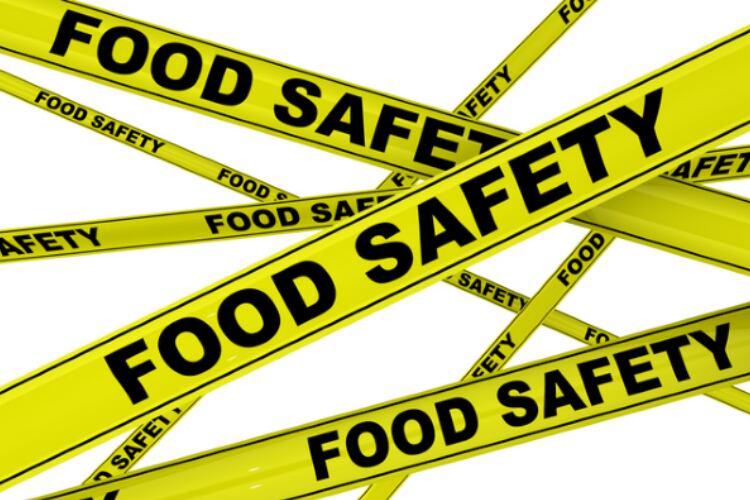Populations worldwide are growing and ageing, becoming more mobile and increasingly urbanised. This means ensuring people have access to sufficient quantities of food and food of sufficient quality which means guaranteed safety becomes increasingly difficult.

According to the World Bank, ‘the total productivity loss associated with foodborne disease in low and middle-income countries is estimated to cost $95.2 billion a year, and the annual cost of treating foodborne illnesses is estimated at $15 billion.’ Meanwhile, according to the UN, unsafe food kills an estimated 420,000 people every year. Then there are the agricultural challenges posed by climate change, set to contribute further complexity over the years and decades ahead.
Protecting new production methods
"Traditional approaches to agriculture will not be sufficient to feed the planet’s population as it both grows and becomes increasingly urbanised. Urban farming in particular is going to be vital if the world’s growing towns and cities are to have even the slightest resilience to food shortages," said Manouselis.
"As outlined by Lifegate, urban farming first took root during the Second World War. It has now developed to encompass vertical and rooftop farming, techniques that are highly space-efficient and enable producers to grow food in environments that were previously deemed impossible. They are also valuable from environmental and wellbeing perspectives, making urban areas more attractive and healthier.
"However, urbanised farming also introduces new food safety challenges. Firstly, producers need to consider the potential contamination of food from the likes of air pollution and litter. Secondly, growing numbers of non-traditional producers – such as retailers growing produce for direct sale – will need to rapidly get to grips with the processes and regulations governing the safety of food supply.
"Transparent and effective information-sharing is critical to overcoming these challenges. From sensors automatically monitoring the levels of pollutants at urban vegetable plots, to tools and datasets offering new entrants to the food supply chain intuitive, easy-access visibility across the global food supply chain. In the future, the supply chain will incorporate an array of new techniques for generating and sharing food safety data."
The shift towards plant-based products
According to Manouselis, the shift away from animal sources to alternative forms of protein has steadily moved up the global media and political agenda in recent years. The twin challenges of a rapidly growing global population and the changes to farming wrought by climate change mean that looking beyond poultry, beef, pork and lamb is going to become increasingly important.
Additionally, there has been a move away from pure dairy products - especially milk - towards more plant-based products like almond or soybean. New analysis revealed the number of food safety incidents reported in dairy products such as butter, cheese, milk and yoghurt had increased by 93% in the past five years compared to 2010 to 2015. Therefore, this transition away from animal sources could be seen to have its benefits, but only if emerging ingredients are managed correctly.
"As the World Economic Forum has reported, diversifying the sources of protein we eat into an array of plant-based products is both a smart business decision and essential to keeping the planet fed – but it also complicates global supply chains and introduces new food safety risks that did not exist just a few decades ago," added Manouselis.
"Many plant-based protein products require multiple ingredients and require manufacturers to keep a tight overview of a complex supply chain, ensuring the safety and integrity of ingredients every step of the way.
"As with all new production methods, organisations entering the alternative protein arena must be able to gain real-time and accurate visibility across the entire supply chain, rapidly identifying and responding to food safety incidents. Additionally, ‘traditional’ dairy powers like Danone are switching to essential plant-based dairy. Therefore, data is key for their understanding of the food safety challenges they have to face, within the manufacturing and supply of this emerging product category."
At the micro level
Manouselis claims these innovations may be understood at the scale of cities or even countries, but there are just as exciting food safety innovations happening at the microscopic level.
The use of DNA testing and whole-genome sequencing has been emerging in recent years, enabling organisations to better understand, for example, the profile of particular bacteria in greater detail.
The implications for intelligent predictions in global food supply chains suggesting, for example, which areas may be at the highest risk of contamination, have huge potential. Such mapping can also be used to make informed decisions around the best strain of a particular plant to work with as it is less likely to fall victim to a particular disease.
"In order to respond to the food safety challenges of the future, organisations from across the industry are going to need more accurate, more comprehensive and more dynamic intelligence pertaining to key safety metrics," said Manouselis.
"From microscopic levels of understanding the genome of a particular bacteria to city-wide levels of understanding the pollutants affecting new urban farms. Intelligent tailor-made data insights will enable organisations to plan, prepare and respond to food safety risks across the global supply chain."



